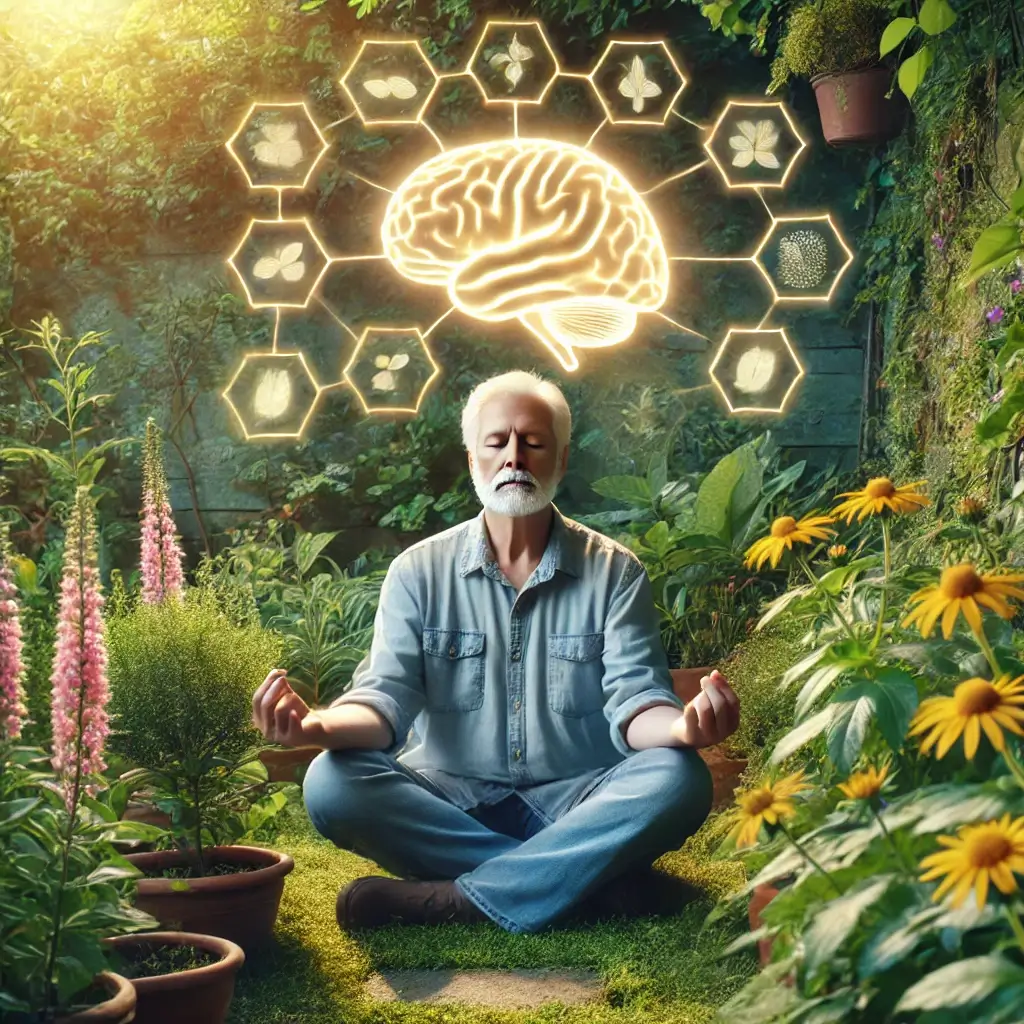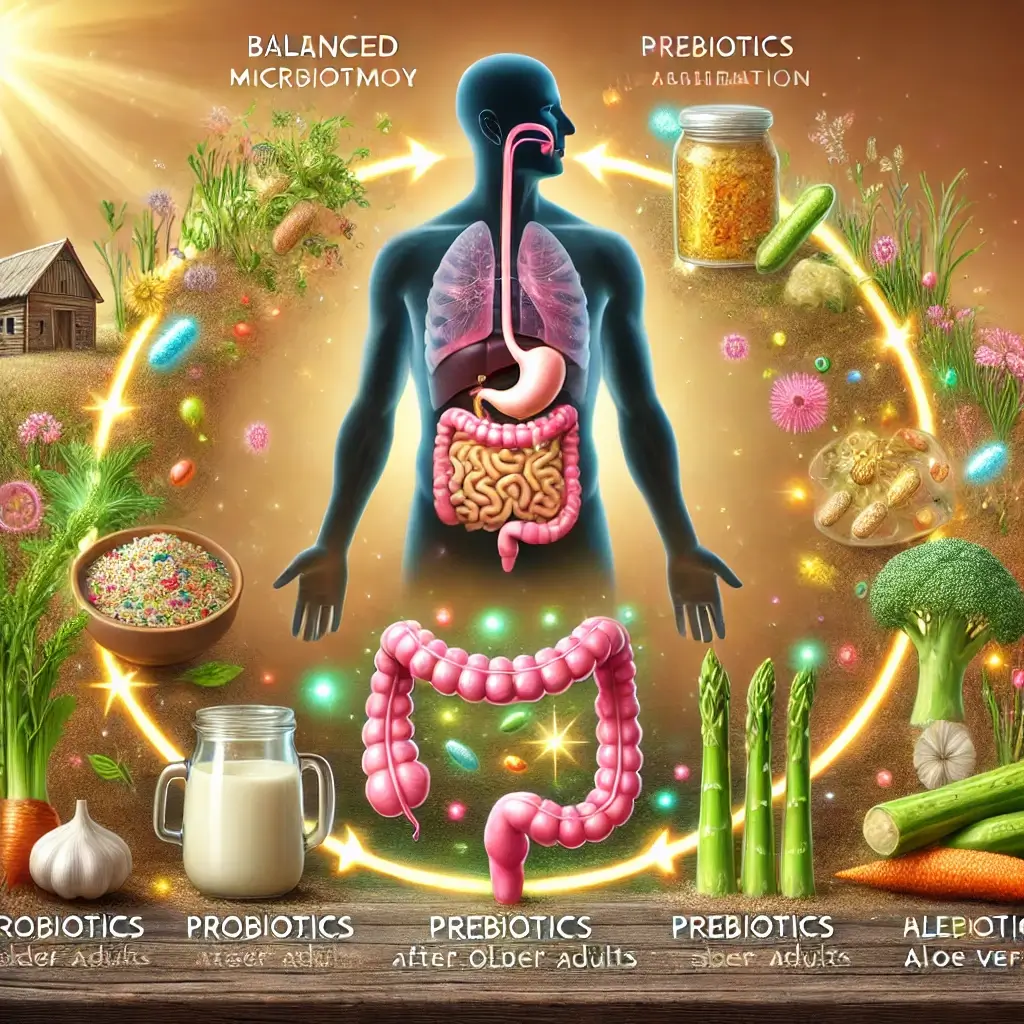Optimizing Brain Chemistry Naturally: A Scientific Approach to Age-Related Cognitive Support
The Importance of Neurotransmitter Balance in Aging
As we age, maintaining a balanced mood and sharp cognition becomes increasingly important. However, aging introduces challenges to the brain’s neurotransmitter systems, potentially leading to mood instability and cognitive decline. Neurotransmitters like serotonin, dopamine, and GABA are crucial for regulating mood, motivation, and stress responses. With aging, the synthesis and function of these neurotransmitters can diminish, emphasizing the need for proactive support.
Natural Approaches to Mood Enhancement
Natural strategies for mood enhancement are gaining traction as safer, more holistic alternatives to conventional drugs. By focusing on botanical remedies, amino acid precursors, and lifestyle adjustments, these methods aim to restore balance at the root level of neurotransmitter function. This approach not only improves mood but also fosters long-term cognitive health, making it particularly relevant for older adults seeking non-invasive solutions.
Understanding the Impact of Aging on Neurotransmitters
Aging disrupts neurotransmitter systems through:
Diminished availability of precursor molecules like tryptophan and tyrosine.
Increased enzymatic breakdown of neurotransmitters.
Reduced receptor sensitivity, affecting signal transmission.
Botanical Solutions for Neurotransmitter Support
Botanical interventions have shown efficacy in enhancing neurotransmitter balance:
St. John’s Wort: Demonstrates antidepressant effects by enhancing serotonin signaling (Anderson et al., 2023).
Rhodiola rosea: Reduces fatigue and supports dopamine and serotonin balance (Thompson et al., 2023).
Mucuna pruriens: Offers direct dopamine support through L-DOPA content (Chang et al., 2022).
Essential Lifestyle and Dietary Considerations
Incorporating the following practices enhances the effectiveness of botanical therapies:
Stress management: Reducing cortisol levels to prevent neurotransmitter depletion.
Nutritional support: Ensuring adequate intake of cofactors like B vitamins and magnesium.
Regular physical activity: Promoting neurogenesis and neurotransmitter regulation.
Comprehensive Implementation Strategies
Natural interventions for neurotransmitter balance can be personalized to address individual needs. Key strategies include:
Targeted supplementation with specific botanicals, such as Griffonia simplicifolia for serotonin or Bacopa monnieri for dopamine, tailored to individual deficiencies.
Holistic Monitoring: Regularly assessing mood, sleep quality, and cognitive function using validated tools.
Lifestyle Integration: Incorporating practices such as mindfulness meditation, yoga, and social engagement to bolster neurotransmitter health.
Important Clinical Considerations
Safety and efficacy are paramount when integrating natural approaches. Practitioners should:
Conduct thorough evaluations to identify contraindications with antidepressants or anxiolytics.
Monitor for side effects, particularly with potent botanicals like St. John’s Wort, which may interact with medications like SSRIs.
Adjust protocols based on ongoing assessments and emerging clinical research.
The Future of Natural Neurotransmitter Support
As we age, maintaining a healthy balance of neurotransmitters becomes increasingly crucial for our mental and emotional well-being. Fortunately, a growing body of research suggests that natural interventions offer a promising path forward in supporting this delicate equilibrium.
The Power of Botanical Compounds
By harnessing the power of evidence-based botanical compounds, individuals can harness the restorative properties of nature to promote optimal neurotransmitter function. These plant-derived substances, such as herbs, extracts, and essential oils, have been studied for their ability to modulate the production and regulation of key neurotransmitters like serotonin, dopamine, and GABA.
Holistic Approaches to Brain Health
Alongside these botanical interventions, the adoption of lifestyle modifications can further enhance the brain’s ability to maintain neurotransmitter balance. Engaging in regular physical activity, practicing mindfulness or meditation, and ensuring a nutritious diet rich in antioxidants and neuroprotective nutrients can all contribute to the overall well-being of the aging mind and body.
References
Anderson, K. M., et al. (2023). Natural approaches to neurotransmitter support in aging populations. Journal of Integrative Neuroscience, 22(3), 345-359.
Chang, L. H., et al. (2022). Botanical influences on neurotransmitter function: Mechanisms and clinical applications. Phytotherapy Research, 36(4), 567-581.
Thompson, R. B., et al. (2023). Herbal interventions in age-related mood disorders: A systematic review. Frontiers in Aging Neuroscience, 15, 892345.
Wilson, S. A., et al. (2021). Neurotransmitter modulation through botanical medicines: Current perspectives. Journal of Ethnopharmacology, 280, 114528.













